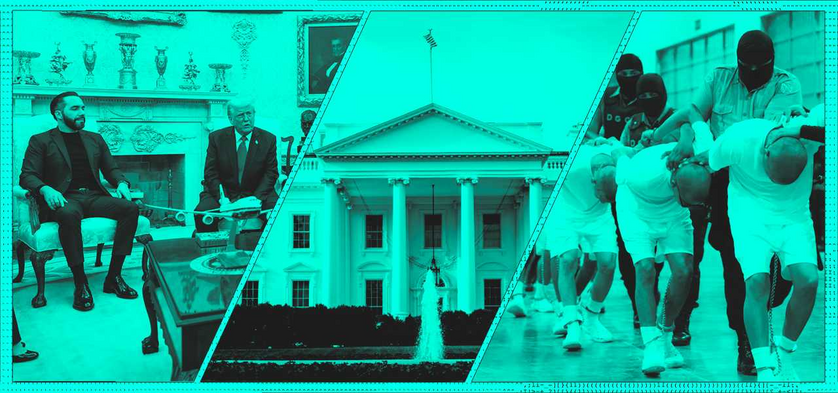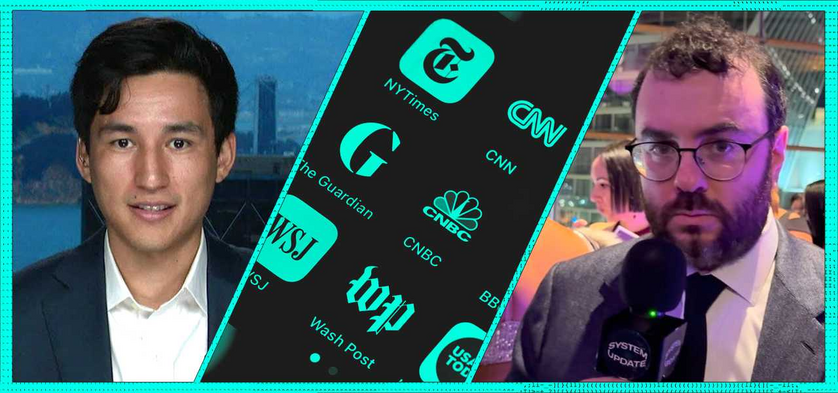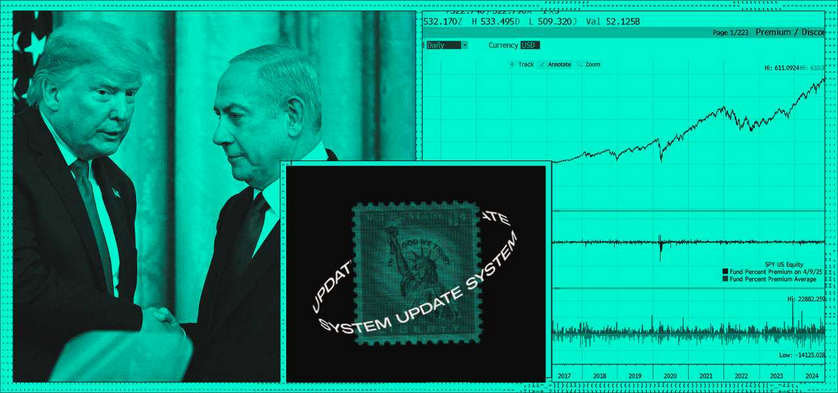The following is an abridged transcript from System Update’s most recent episode. You can watch the full episode on Rumble or listen to it in podcast form on Apple, Spotify, or any other major podcast provider.
System Update is an independent show free to all viewers and listeners, but that wouldn’t be possible without our loyal supporters. To keep the show free for everyone, please consider joining our Locals, where we host our members-only aftershow, publish exclusive articles, release these transcripts, and so much more!
There is actually a lot to cover. I want to focus specifically on the meeting that President Trump had in the Oval Office with El Salvadoran President Nayib Bukele, because there was a great deal of things said that I think weren't a lot of analysis, a lot of breakdowns, a lot of understanding of very consequential claims that were made, claims that in some senses were untrue, other claims seemed to be quite radical.
It's always hard to know exactly when Trump says something, whether he really means it, whether he's doing it to be a little bit trolling, whether he's going to provoke some sort of response. But it nonetheless is our responsibility if the president of the United States says he intends to do something – and he didn't just say it once, he said it repeatedly throughout the week – obviously then it's important to discuss what it is that he said in the case of a radical idea like deporting American citizens convicted of crimes to El Salvador to serve in an El Salvadoran dungeon that is notorious around the world for human rights abuses.
I think it's very important to take that at least seriously enough to talk about it. If you object, that's your right as a citizen, you could say your duty, certainly a duty as a journalist. So, there's certainly a lot to break down. We will do our best to do that for you.
El Salvador is a small country; the U.S. had been at war with it, involved in dirty wars there throughout the 1980s. It is generally considered an underdeveloped country – still is – but President Bukele has gained global attention in part because the government under him just rounded up thousands and thousands of people who were not convicted of crimes but were “suspects in gang violence.”
No question, a lot of them have been swept up who are innocent, many of them guilty, and they're put into not ordinary prisons, but prisons that are some of the cruelest, most dehumanizing and exploitative in the world, purposely meant to dehumanize. Bukele talks openly about the fact that the prisons pay for themselves because they force the prisoners, basically, to engage in slave labor. They love to take videos and photos and make all kinds of films showing the dehumanization process.
Rights have been run roughshod over in El Salvador. There's no free speech; you can't criticize Bukele. If you're a journalist, you get attacked by the government if you do so. There's certainly no right to due process. People who go into this prison are meant to stay there for life. There's violence in this prison, not from the prisoners, but from the guards. It's a place that you're intended never to leave.
A lot of people in El Salvador, as often happens with authoritarianism, love their leader. They love their authoritarian leader because it has had results. It has significantly lowered crime in a place once plagued by a lot of violence, it has now become significantly safer.
In general, though, we in the United States, our founding values, our founding as based in the values of the Enlightenment, don't believe that we should sacrifice rights for safety. The whole Constitution, in fact, is intended to elevate the rights of people, even if it means impeding our ability to catch criminals. The founders understood, because they were waging a war against the British crown, that all the rights that the British crown routinely invaded in the name of stopping crime – invading people's homes with no search warrant, just rushing them through a trial with no rights if they thought they were guilty – those were the things that had to be avoided if America was really going to be free and democratic. These are the things in the Constitution that you can go and read, none of which are available in El Salvador.
So, there is a little bit of an oddity that the person most responsible for this authoritarianism – you can even call it tyranny – in El Salvador, although with positive results that many of the people in El Salvador seem to like – again, it's not uncommon for people to love their authoritarian leader. People crave security, crave, crave protection. If you promise them that in exchange for something they fear, they'd be happy to give up rights. We've seen that in American history. That's what the War on Terror was. It's what all sorts of wars in the United States have entailed, including the Cold War. It's a very common formula that the American founders set out to avoid most.
So, it's a little strange, to put that mildly, to see a political faction – what do you call it? MAGA movement or nationalists, whose primary objective or aspiration is to preserve American values – venerating a tinpot dictator, at this point, of a small Central American country as someone who is not just a close ally of the United States who we pay to imprison people even though they've never been convicted of crimes, we just send them there when their only crime is having entered the United States illegally – although some people have been sent there who haven't entered illegally, who are in the United States legally, seeking asylum, who came through a legal port on the border, the port of entry, as people are told to do. But in any event, it's not just that we're allied with him, but a lot of people seem to really admire Bukele, almost suggesting that we in the U.S. need to use him as a model, to use El Salvador as a model for how our own country should be – in part to fight crime, in part to fight the obvious problem that most people agree is a real problem of people pouring into the country illegally.
So, the question becomes how much liberty are we going to sacrifice? How many constitutional rights are we to repudiate in the name of these other goals, whether, oh, we have to fight crime as though crime is rampant, worser than usual, or because of the problem of people in the country illegally?
The laws of the United States make it very easy to deport someone who's in the United States illegally. You don't even have to go to a real court. You just issue a removal order, you go to a special deportation court that's not even part of the Article III Judiciary, it's just inside the Department of Justice, and they just rubber-stamp it. All they want to know is: Is the person in the United States here legally? If the person can't show they are – and it's very easy, it's just, here's my green card, here is my visa – if they don't have that, it means they've entered the country illegally and the court approves their deportation.
But deportation means sending them back to their country of origin and what has been so controversial is not that. President Trump ran three times on a pledge of sending people in the country illegally to deport them back to their country of origin, people voted for him in the last election based on that promise of mass deportations. Most people involved in these debates have no problem with the legal deportation of people in the country illegally. That's what Trump pledged to do, he had a democratic mandate for that and polls show that's what people want. That's not the issue.
What's happening is much, much different: people aren't being sent back to their country of origin. They're being sent to El Salvador, a country they've never been to, they have nothing to do with, they're not citizens of, never have been and they're being imprisoned in one of the worst prisons on the planet while the United States pays for their imprisonment and they're being imprisoned for life based on allegations of criminal activity.

















